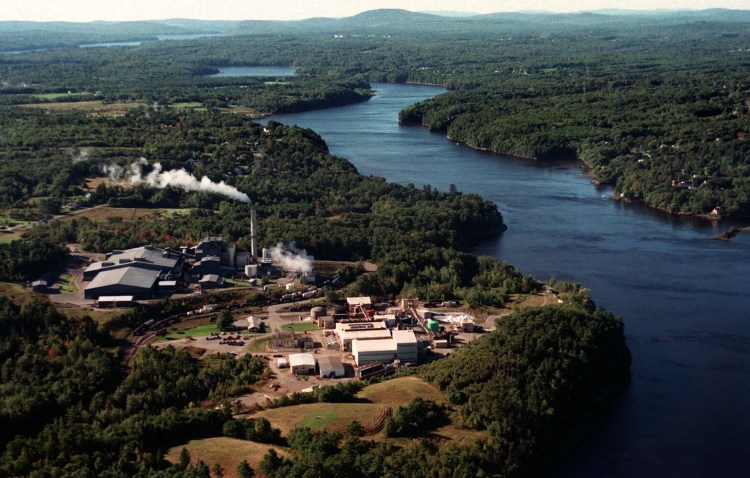A federal judge began hearings Friday that could resolve a decades-long legal battle and begin one of the costliest environmental remediation projects in Maine history.
In 2000, Maine People’s Alliance and the Natural Resources Defense Council sued Mallinckrodt US LLC over mercury contamination in the Penobscot River from the former HoltraChem site in Orrington. The company owned the chemical plant between 1967 and 1982.
After two trials and multiple scientific studies, the parties finally reached a settlement agreement earlier this year.
Under the proposal, Mallinckrodt would pay $187 million for primary remediation measures and long-term monitoring of the river, plus an additional $80 million in contingency funds. U.S. District Judge John Woodcock will hear three days of testimony and public comment in Bangor before he decides whether to approve the agreement.
Both sides have asked the judge to support the plan.
In their brief, the plaintiffs describe mercury as a threat to “both human and ecological health.” In 2011, the state posted a consumer warning telling women and children to avoid eating waterfowl from that area because of dangerously high mercury levels found in black ducks. In 2014, Maine closed a 7-square-mile area at the mouth of the Penobscot River to lobster and crab harvesting because of the contamination. Two years later, the state expanded that area by 5 square miles.
“The Proposed Consent Decree would bring about one of the largest environmental cleanups in Maine history, all underwritten by private funds, and the work would be supervised by experienced, independent remediation trustees,” the plaintiffs wrote in their brief. “The Proposed Consent Decree is an inflection point for this case and heralds a rebirth for the Penobscot River Estuary.”
Mallinckrodt has asked the judge to bar future claims against the company for mercury contamination in the Penobscot. The company has already spent millions of dollars cleaning up the 235-acre facility site and paying for studies ordered by the court.
“The proposed settlement was deliberately and thoughtfully crafted. It brings to bear the knowledge acquired over decades of study. It results from more than a year of negotiation between the Parties, who were advised by their technical consultants. … This settlement should afford Mallinckrodt a meaningful degree of finality,” the company wrote in its own brief.
The factory on the riverbank made chlorine bleach and other chemicals. Unbeknownst to state officials, the company discharged mercury directly into the river in the form of contaminated “brine sludge” during its ownership of the plant. One study estimated the plant discharged between six and 12 metric tons of mercury during its lifetime. Most of the pollution occurred in the late 1960s and early 1970s. A later operator, HoltraChem Manufacturing Co., closed the plant in 2000 and declared bankruptcy.
The parties selected Greenfield Environmental Trust Group to head the remediation project. They said the work will focus on areas where remedies can have a material impact, including Orrington Reach, Mobile Sediment Pool and the Orland River. They also established a website with more details about the plan at penobscotrivermediation.com.
The hearings will continue Monday and Tuesday in Bangor. There is no deadline for the judge to issue his order.
Send questions/comments to the editors.




Comments are no longer available on this story